I’m sitting at my kitchen table listening to my kids play outside with a group of kids who are African American, Japanese, Indian, and Mormon. I’m thinking about what happened in Orlando and wondering at what point we all stop riding down a dirt hill screaming and laughing together, and instead decide we all hate each other.
Last night, we got to the part in Harry Potter where Harry learns how terrible his father was to Snape. James Potter broke Hadley’s heart.
“So, he’s bad?” Hadley asked.
“Well, I don’t think he’s bad, but I think he did some bad things,” I said.
“He should’ve been in Slytherin,” Hadley said, but Jesse said, “People who are in Slytherin aren’t necessarily bad. They want power, and they’re good at getting it. But they have a choice how to use that power, just like everyone in all the other houses has a choice how to use what they’re good at.”
“Remember when Dumbledore told Harry that he always has a choice?” I said. “He can use what he has for good or for evil? I think that’s how it is with all of us.”
“So James is good? Does he get good?” Hadley asked.
“I think he’s good, Hadley,” I said, “but I think he makes bad decisions. Just like I make bad decisions sometimes.”
“Well, then maybe Voldemort can be good!” Harper chimes in, and she was thrilled to share her contribution. “If James is good, but does bad things, that means Voldemort is bad but might do some good things! We don’t know,” she said, and she jumped and spun around the bedroom. Lately, Harper never stops moving when she talks. She is constantly in motion, and the happier she is, the more she flies. “I’m gonna look for good in Voldemort!” she declares, reaching her hands in the air.
She has her work cut out for her, but I like her style. I’m glad she’s willing to look at someone who is terribly hard to love.
The last essay question I gave my 8th graders went like this:
Here is a quotation from a poet named Rainer Maria Rilke: “It is also good to love: because love is difficult. For one human being to love another human being: that is perhaps the most difficult task that has been entrusted to us, the ultimate task, the final test and proof, the work for which all other work is merely preparation. That is why young people, who are beginners in everything, are not yet capable of love: it is something they must learn. With their whole being, with all their forces, gathered around their solitary, anxious, upward-beating hearts, they must learn to love.” In three paragraphs, please answer the following questions:
- Why would it be good to love if it is difficult to do so? How do you think “all other work” is preparation for loving another human being?
- Who in Sleeping Freshmen Never Lie learned to love? Explain your answer.
- Think back on your 8th grade year. How have you learned to love this year? Do you agree that this is the most difficult task?
“I think it is good to experience love if it’s not successful,” one student wrote. “It is good to love because you experience the outcome,” another one said. I love these statements. They suggest we love because we are in love, and that standing in and offering ourselves is what the point is, not what we will get out of it. We will be embarrassed. We will get hurt. We will fail. To guard ourselves against these things is not only impossible, it makes for a really boring life.
Here are some things I tried this year:
With my 7th graders, we held a court case for TJ Avery, one of the characters in Roll of Thunder, Hear My Cry.
Everyone was handed an “official court envelope” with documents explaining their assignments and role in the court case.
Each student had to step into character whether it was for or against TJ. For two days, I watched as they tried to find justice in what they knew was a terribly racist case. Some of them had to play the part of the white folk who were actually the guilty ones. Others had to figure out how to defend TJ because it was the law and he had a right to a fair trial, despite the culture of the community. Almost all of us, including me, had to come to terms with how obnoxious and manipulative TJ was throughout the book. Suddenly, we all felt sorry for him even though he’d been terrible to the main characters. We had to examine the difficulty in finding we love someone who is difficult to love.
“This is great practice for when you read To Kill a Mockingbird next year, you guys,” I said, and I wondered whether when they meet Bob or Mayella Ewell if they will feel a slight bit of sympathy for either of them. Will it hurt them to read about her red geraniums? Will they wonder if Bob was ever a decent human being? I haven’t read Harper Lee’s Go Set a Watchman but I know Atticus isn’t the man he is in To Kill a Mockingbird. I also understand that Lee’s father was a different man than he was when she was growing up. I wonder if Harper Lee redeemed her father to the person he once was, and I wonder if it was at the cost of Bob Ewell. I wonder if Harper Lee needed somebody to be put to death so her father could live.
For two weeks, I took the 7th graders outside to observe an object. They were to look at the same thing every day and take notes on it. Then, at the end of two weeks they were to type a one page summary of their observations. After that, they found poems from their summaries using a technique I learned from my friend and poet Stephanie. What you do is box the words you want in your poem, and black the rest out.
I hoped they would find poetry in what they first assumed was something mundane.
The 8th graders and the Kindergarteners worked with each other several times this year. On the last week of school, we visited the Kindergartners and had a Teddy Bear picnic. We read a story about a bear (No Visitors for Bear, thank you Aunt Barb for your immaculate taste in children’s literature!), we wrote stories about our bears, we had gummy bears and Teddy Grahams, and everyone shared their stories.
The day I took these pictures, we were walking down to meet the Kindergartners, and one of my 8th graders, a kid who makes me smile all the time but is a trouble maker with a capitol T, jumped to the ceiling, and knocked one of those sprinkler heads that go off when there’s a fire. I heard it fall with a loud clang and I thought, “I had plans for you, kid.” I picked up the sprinkler and handed it to him. “You have to go up to the office and tell them what you did.” My heart broke because I wanted him in the classroom. When the 8th graders walked in that day, the Kindergartners gasped and said, “They’re here! They’re here!” and I got tears in my eyes that I had to wipe away quickly. I didn’t want my student to miss hearing that someone is thrilled to see him every single day. I didn’t want him to miss out hearing that he is more than a trouble maker.
“It think we try to love to find our better halves,” one of my students wrote. My guess is he was playing off a phrase he’s heard adults use when referring to their spouses, but what if we try to love because a better part of ourselves is reflected in the smiles we bring to others? Or telling someone, “Me, too.” Or, “I can help.” Or, like the boy who rang our doorbell this evening and asked Hadley and Harper, “Do you want to play?”
My favorite statement was this one:”‘All other work,’ might be preparing us to love others, by using our work. Loving and enjoying the things we do is still love.” So everything we do is preparing us to love somebody. All those algebra equations, all those lab reports and hypotheses, all that slow reading of Romeo and Juliet, it’s all to prepare us so we can look at the broken world and love it still.
The kids are outside playing, though the light is fading. I can hear that the silly laughter and gleeful screaming is turning into nagging and nitpicking. They’re all getting tired. “Time for bed,” I’ll soon say and gather my kids up to walk them inside.
We’ll read some Harry Potter. We’ll search for the good in the story. We have our work cut out for us.
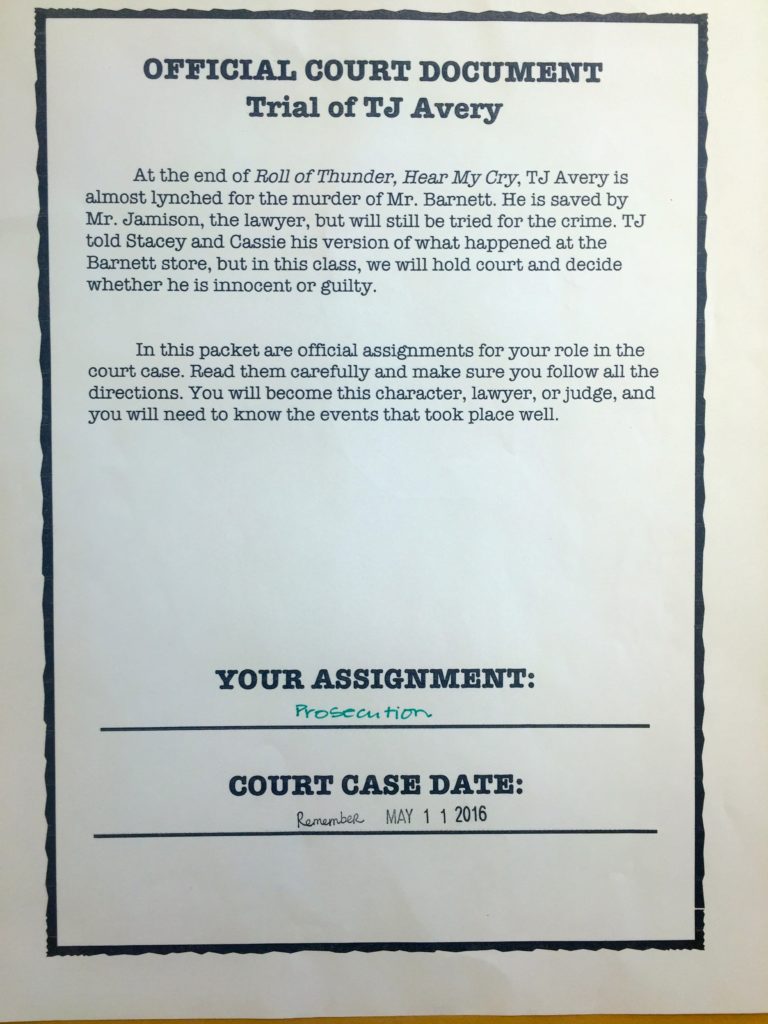
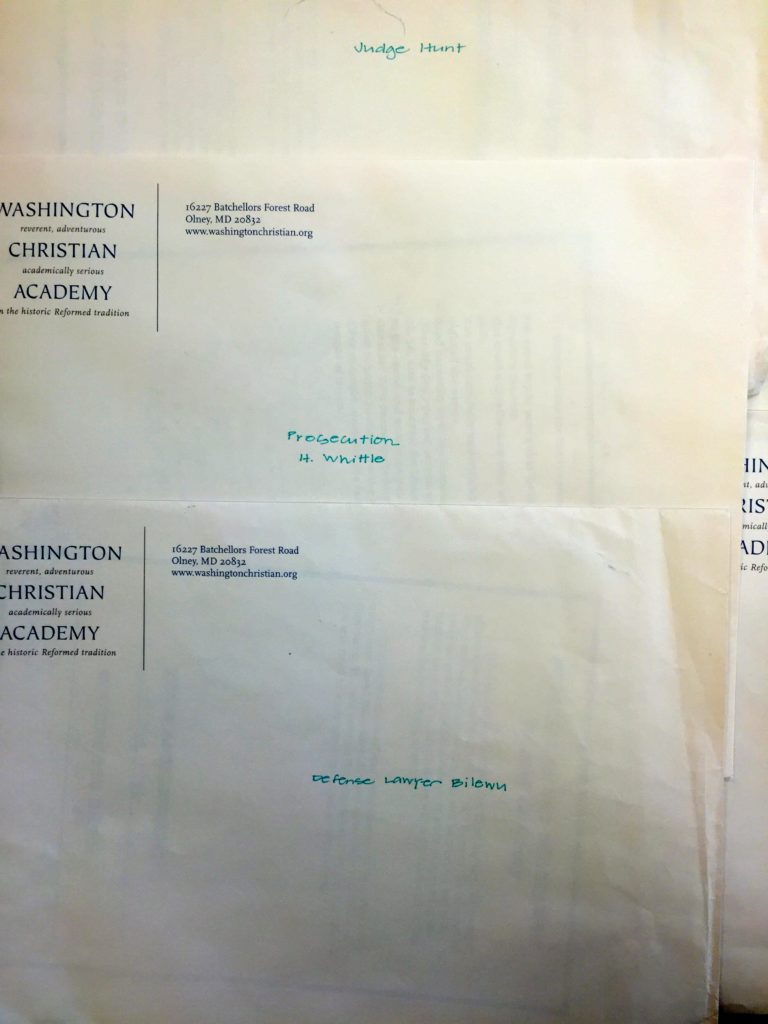
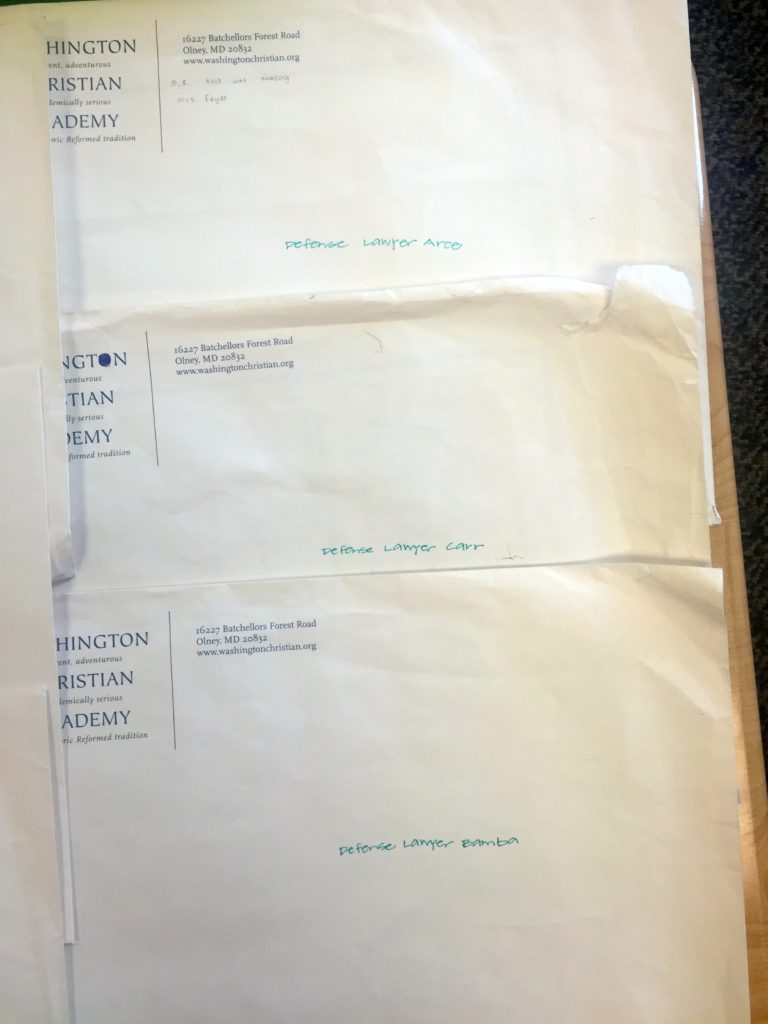
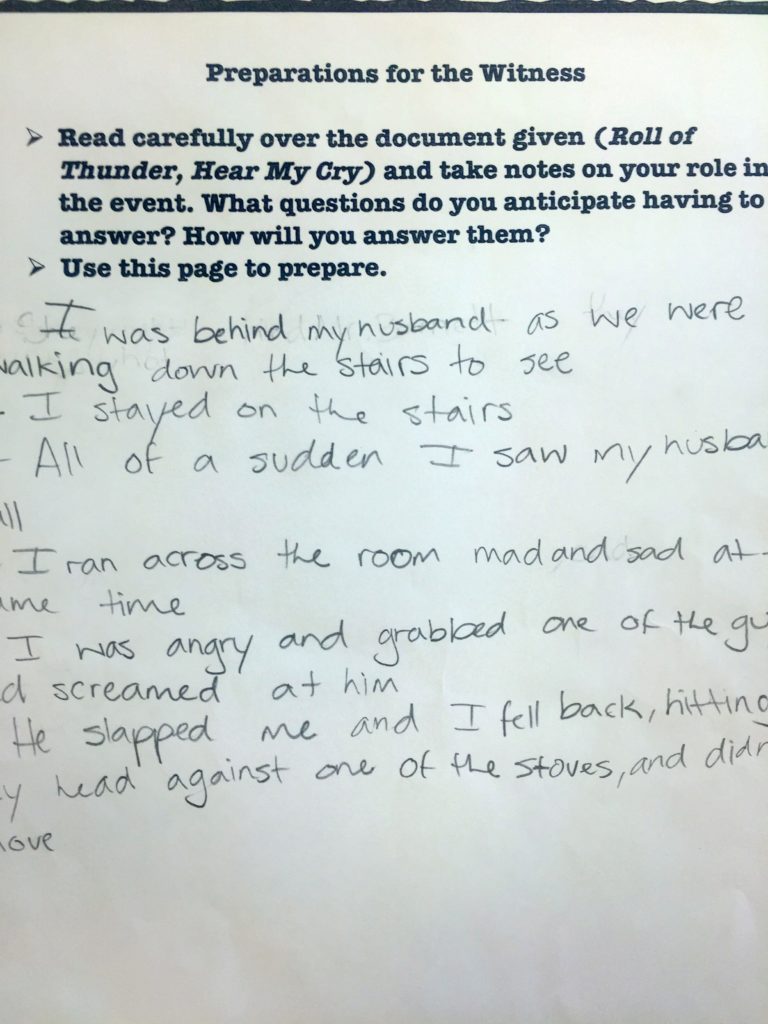
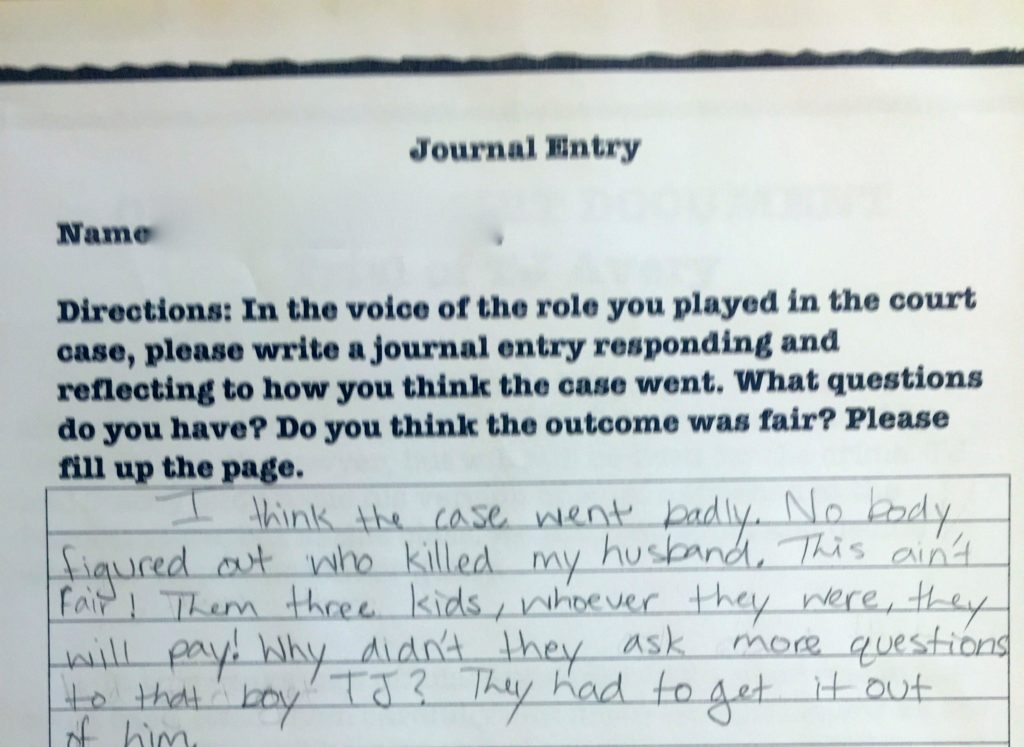
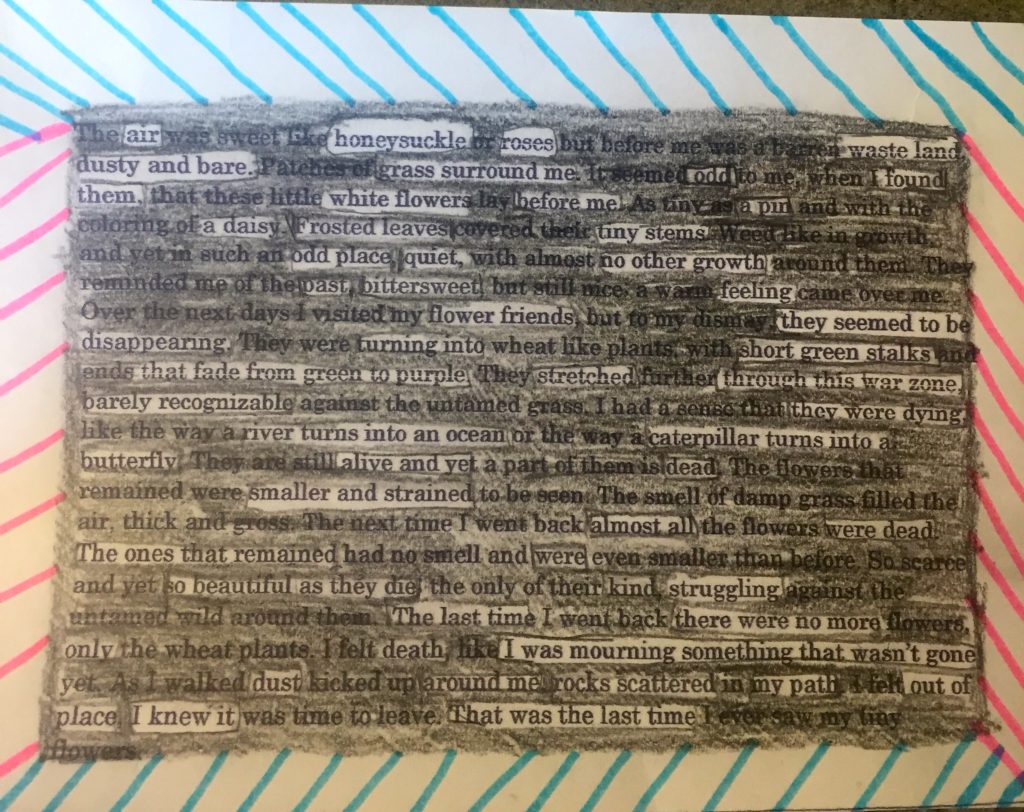
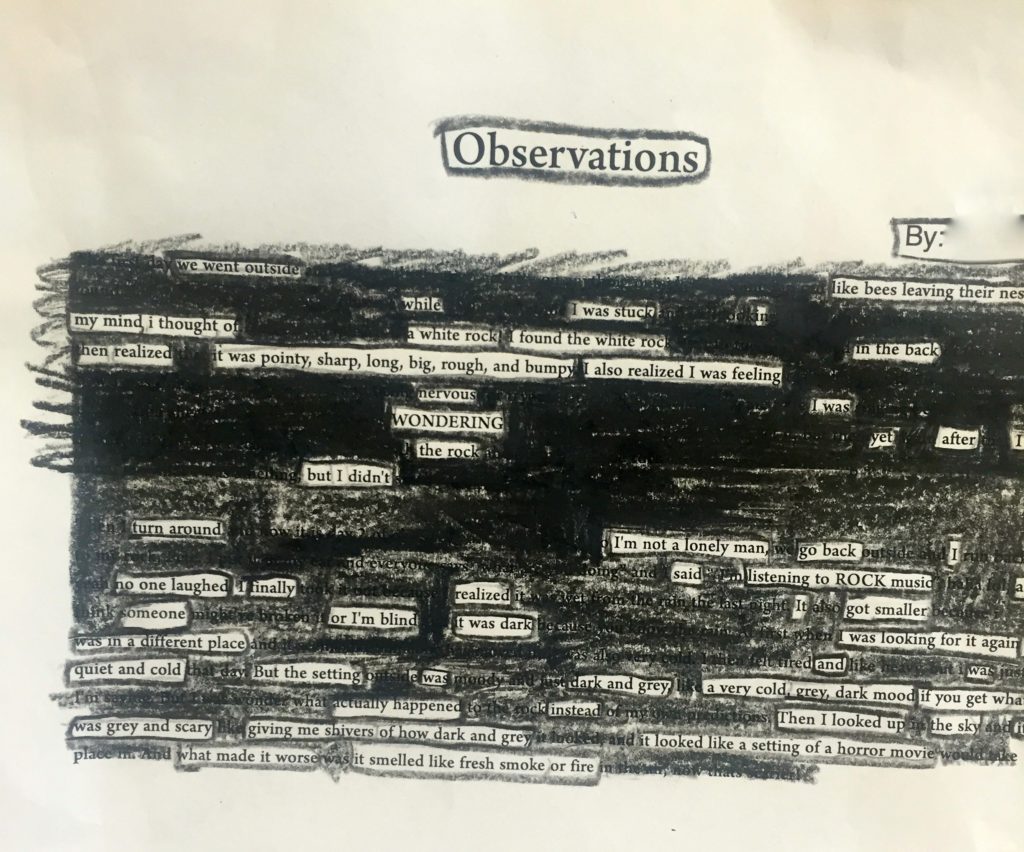
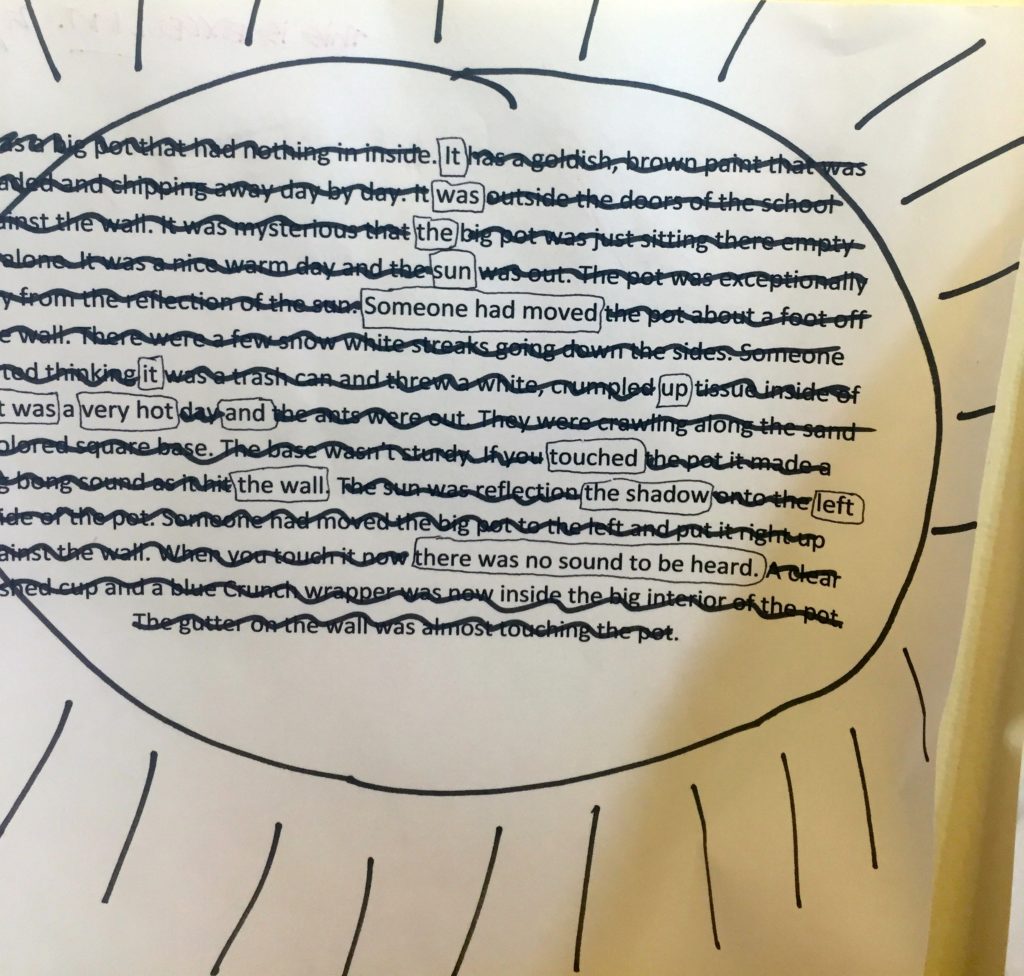
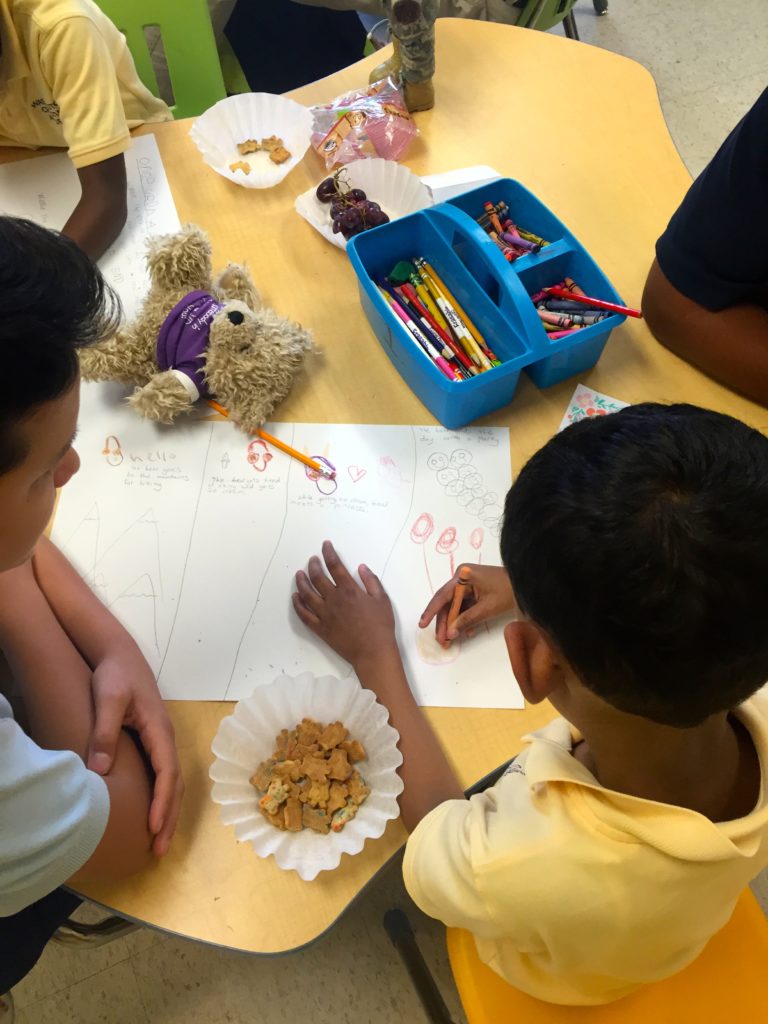
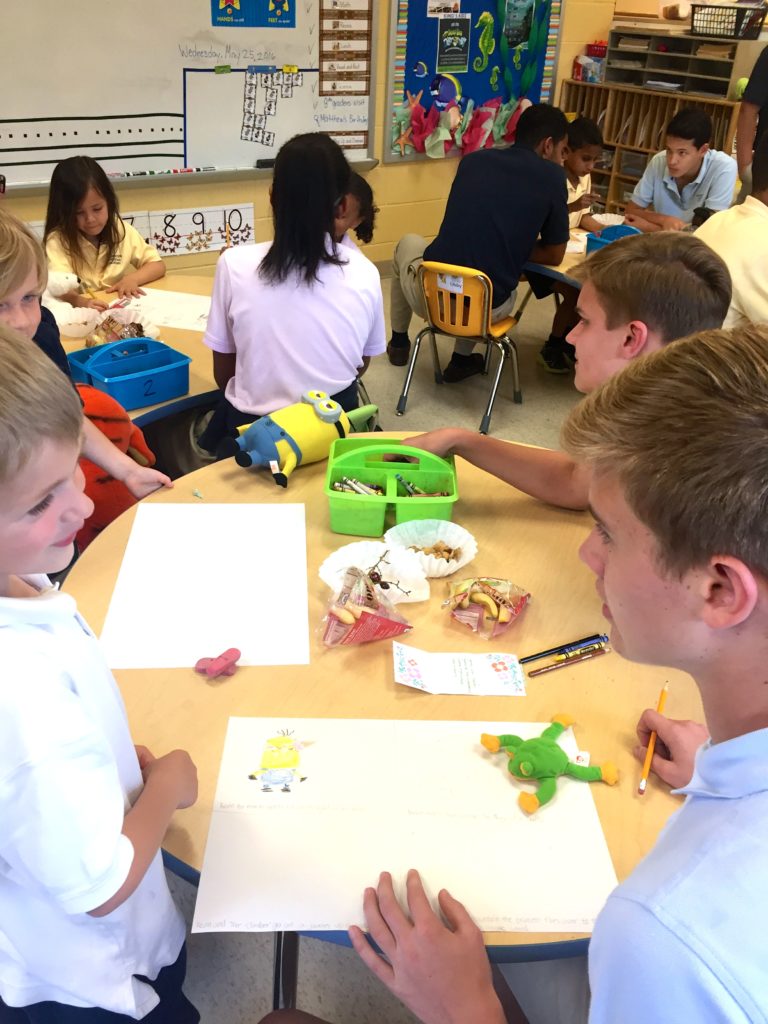
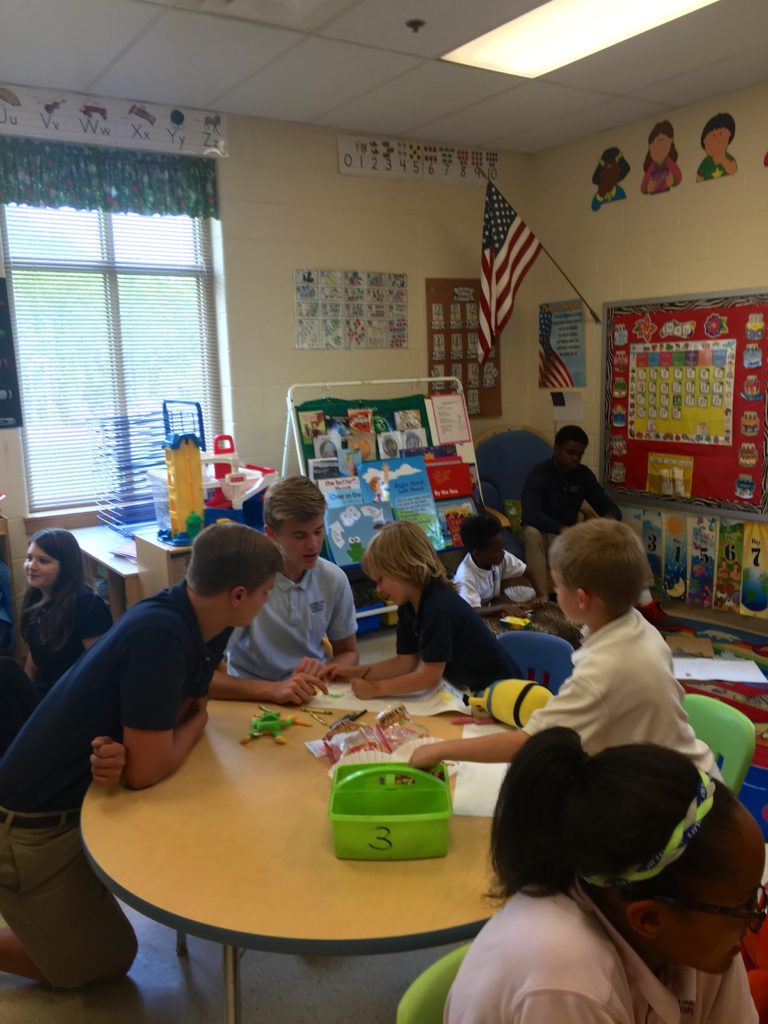
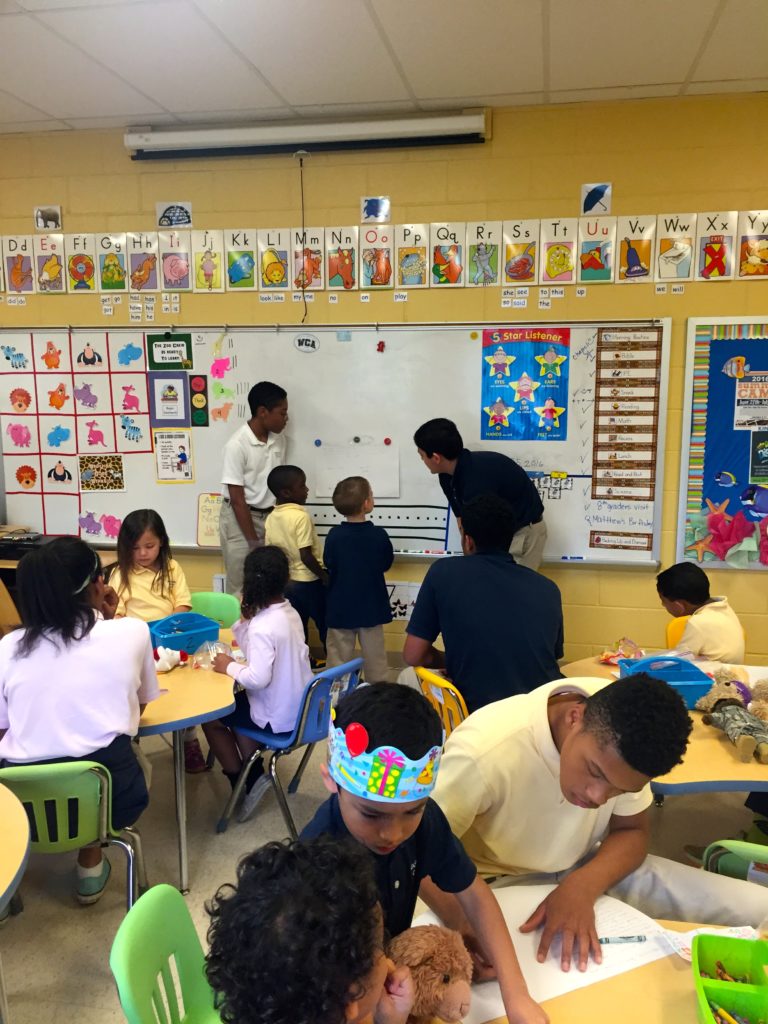
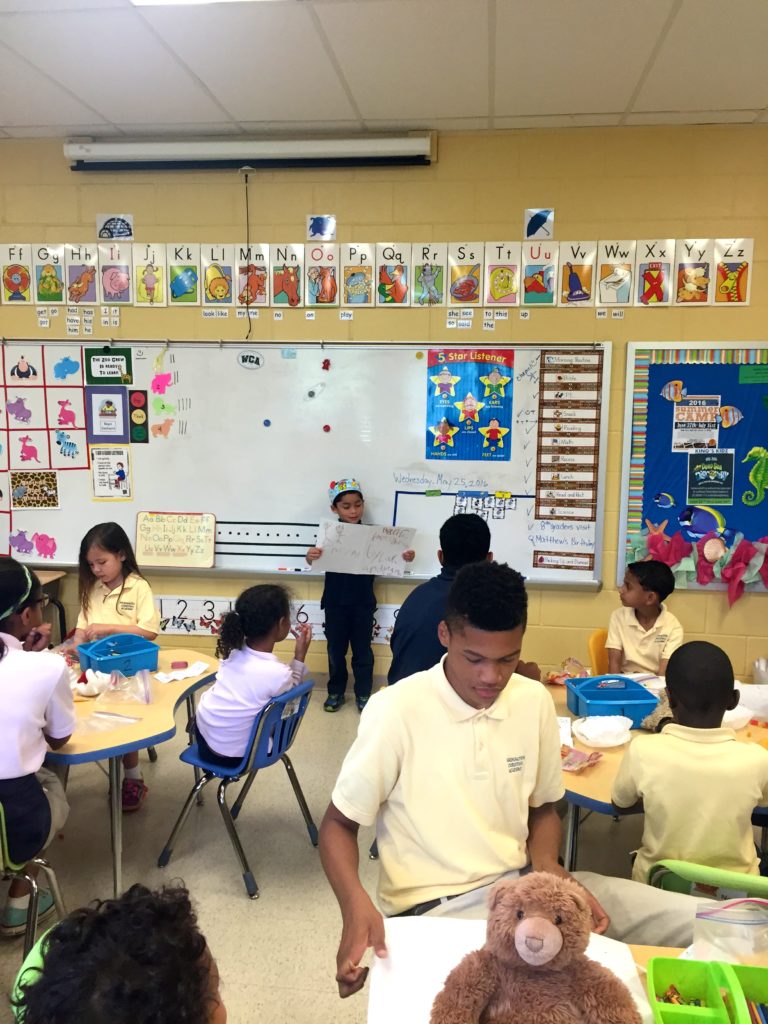

I love the way you weave your stories together, Callie. You find connections in the most beautiful every day things. After reading this I simultaneously want to run back to a classroom to start teaching again and pick up my pen and start capturing stories. Either way, you inspire me to act with your words. Thank you.
(I found your blog through Coffee + Crumbs and was really encouraged by your words in the first Known workshop.)